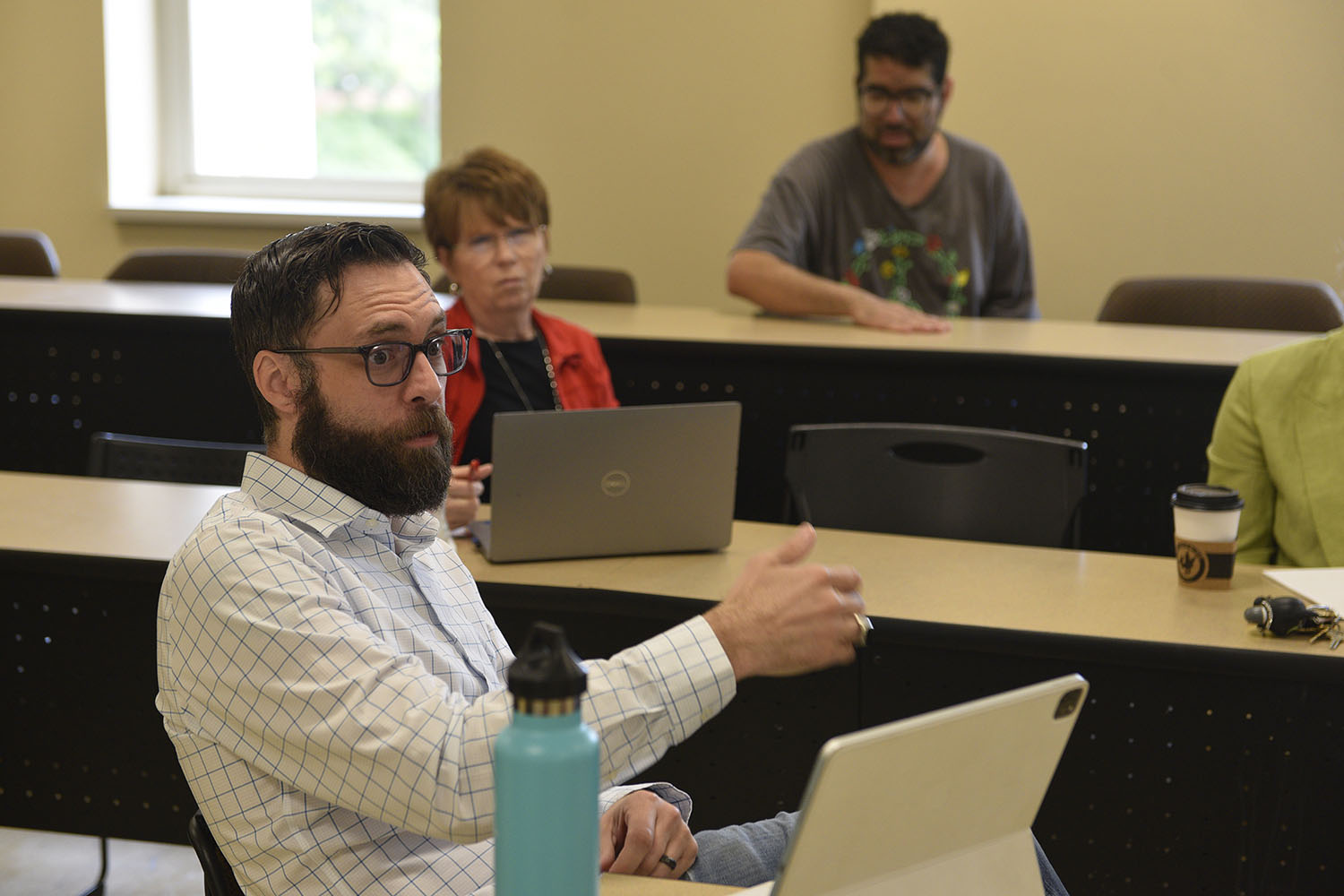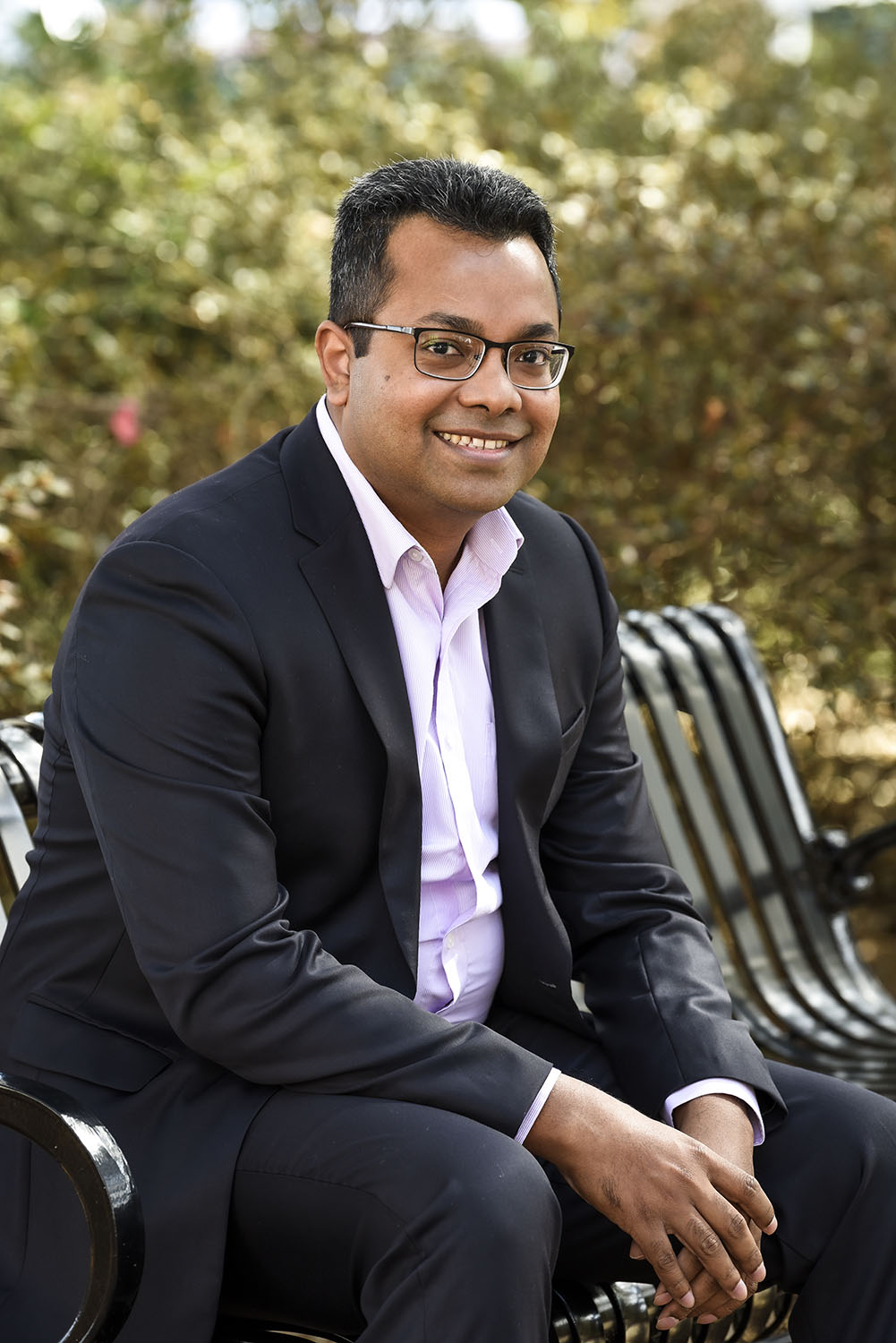$1.2 Million NSF grant supports industry partnerships to give GCSU students more hands-on experience

By Margaret Schell
G eorgia College & State University is one of three colleges awarded nearly $1.2 million for a joint National Science Foundation grant. Athens State University in Alabama and Southern Utah State University are collaborators with GCSU for an NSF Enabling Partnerships to Increase Innovation Capacity (EPIIC) grant to develop industry partnerships that allow students to put interdisciplinary skills to work with hands-on learning.
Earlier this month, Dr. Hasitha Mahabaduge, associate professor of physics, and Dr. Nicholas Creel, associate professor of business law, led an annual grant meeting with collaborating universities at Georgia College. Mahabaduge is the principal investigator for the EPIIC grant and Creel is co-investigator.
“All three institutes are of similar scope and working toward a similar goal,” said Mahabaduge. “One common thing we all have are innovative fellows.”
The goal of the EPIIC grant is getting the institutions connected with industry. The main measurement is the number of faculty who’ll participate while reaching as many students as possible.

“We have the opportunity for our students to work with industry to solve real-world problems while giving them hands-on experience,” Mahabaduge said. “We must ensure we’re preparing students for the types of jobs they will get when they graduate.”
Georgia College’s three faculty fellows who will foster relationships with local industries and train additional GCSU faculty are: Dr. Ania Rynarzewska, assistant professor of marketing; Dr. Whitney Ginder, associate professor of marketing; and Dr. Peter Rosado Flores, associate professor of chemistry.
The grant fellows will divide their time teaching faculty and engaging with local industry partners who will be potential employers for students.
Georgia College will begin integrating the program this summer with a focus on faculty training. The fellows will work with other faculty on redesigning their curriculum to reflect what their students can learn through applied experience with local industry partners. Community-based engaged learning is a cornerstone of the liberal arts education experience at GCSU, and one of several high-impact practices incorporated in the award-winning GC Journeys Program.
The NSF encourages partnering with industry to help students continue to develop communication skills like teamwork and leadership. The EPIIC grant faculty are targeting all four GCSU academic colleges for potential participation in the grant.
“This initial stage allows fellows to focus on the university’s commitment to supporting this expanded role,” Creel said. “We want our faculty to have relationships with industry that translate into real-world projects and engagement, so our students have hands-on learning opportunities.”
The grant is geared toward how all three universities can serve their students better while increasing innovation capacity.
There’s a learning community among the three universities to share resources and ideas.
“We’ve seen a real shift in our system of higher education,” said Jacob Bishop, associate professor of mechanical engineering at Southern Utah State University. “The emphasis is on our institutions meeting the needs of our most developing industries in our state, and the university realigning with meeting those industries’ needs. It's important that we're listening.”
“We are a net importer of jobs in the Hunstville area,” said Rachel O’Sullivan, assistant vice president for external support and alumni affairs for Athens State University. “We are growing so fast that the local workforce cannot keep up with industry demands. So, we must incorporate those industry needs and skills to help our students get to those jobs.”
Header Image: NSF EPIIC grant faculty fellows and investigators from GCSU, Southern Utah State University and Athens State University met at GCSU on May 15. (Photo: Kylie Rowe)
